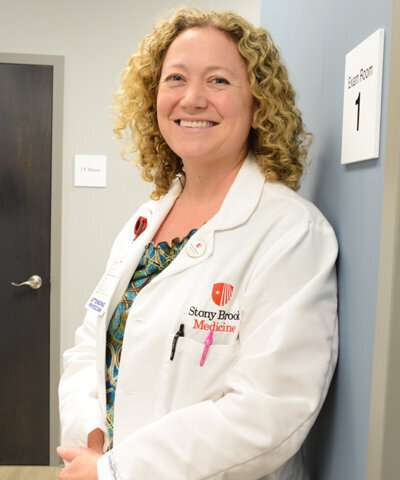Study shows incorporating telemedicine helps surgical practices

A new study that records patient volume at Stony Brook Medicine's Bariatric and Metabolic Weight Loss Center reveals that follow-up telehealth visits are highly effective during the COVID-19 pandemic. The study, published in the December issue of the Annals of Surgery, serves as an example that surgical practices can continue to thrive with the help of telemedicine during the pandemic.
"Embracing telemedicine has been extremely effective for our practice and certainly can be for other practices during this pandemic," says Aurora D. Pryor, MD, lead author on the paper, Director of the Bariatric and Metabolic Weight Loss Center, and Professor of Surgery at the Renaissance School of Medicine at Stony Brook University. "Our patients and multiple healthcare providers involved in metabolic health and bariatric surgery services find telemedicine to be effective, because in-person care is not necessary for certain aspects of patient care and follow-up, and telemedicine saves time and reduces exposure risks for patients and providers alike."
The study, titled "The Impact of Telemedicine Adoption on a Multidisciplinary Bariatric Surgery Practice During the COVID-19 Pandemic," recorded patient volume categorized as pre-telehealth and post-telehealth—periods of a similar time range from February to April 2020. Post-telehealth is when the practice incorporated telehealth services according to pandemic guidelines.
A total of 506 patient visits were recorded in the pre-telehealth period, with 162 new patient visits and 344 follow-ups. A total of 413 patients were recorded in the post-telehealth period, with 77 new patient visits and 336 follow-ups.
After telehealth implementation, new visits for surgeons did decrease by 75 percent over the period, and follow-ups surgical visits decreased by 55 percent. However, during telehealth there was a 27 percent increase for other non-surgical practitioners involved in the Bariatric and Metabolic Weight Loss Center practice, an indication that patients have been able to continue their care to a high degree post-surgery or before elective surgery.
Dr. Pryor says this increase in patient follow-up visits for certain services because of telemedicine practices may prove to help bariatric surgery practices, and potentially other surgical practices, in their overall care of patients during the pandemic—especially since elective surgical practices have been profoundly impacted by the pandemic.
She and her coauthors conclude that although new patient visit volume decreased across the board, the increase in follow-up visits for some healthcare services provides a template for adoption of a multidisciplinary telehealth clinic in a post-pandemic world.



















